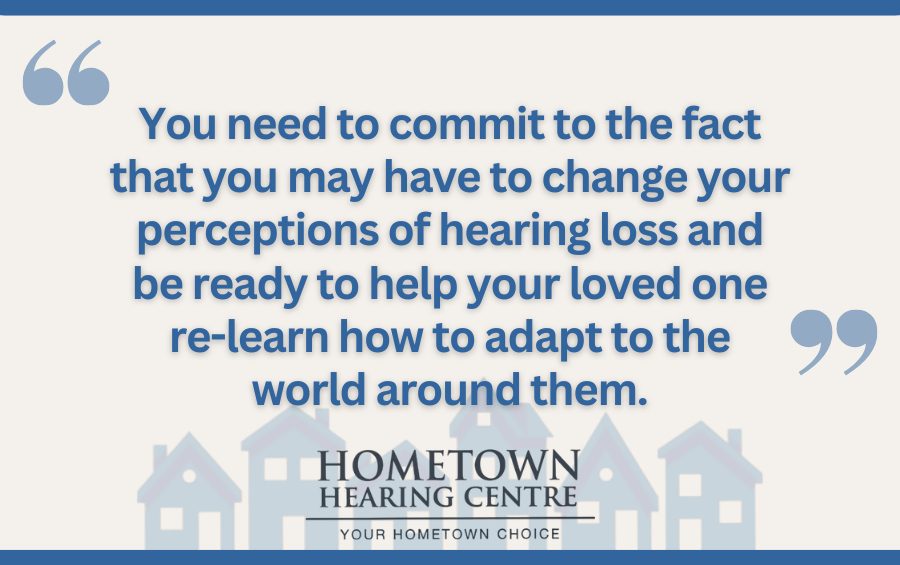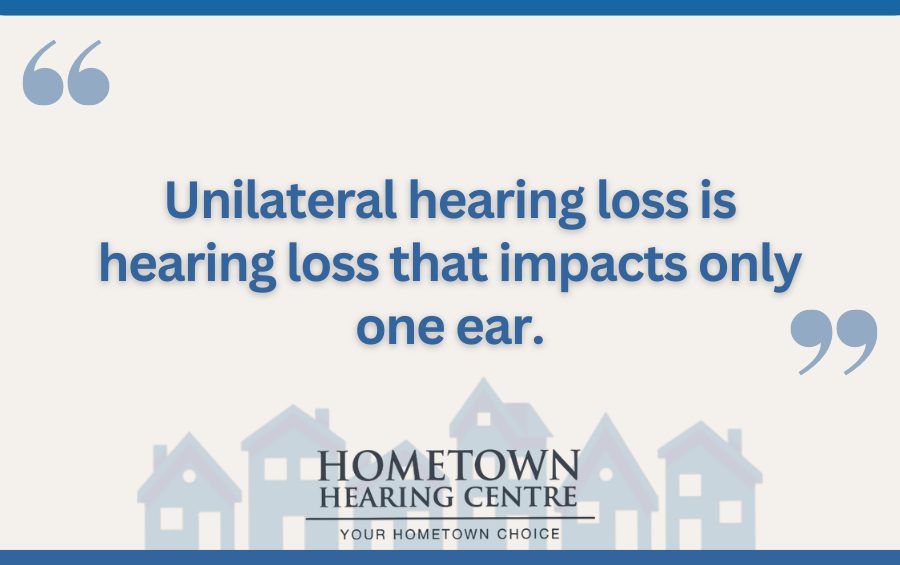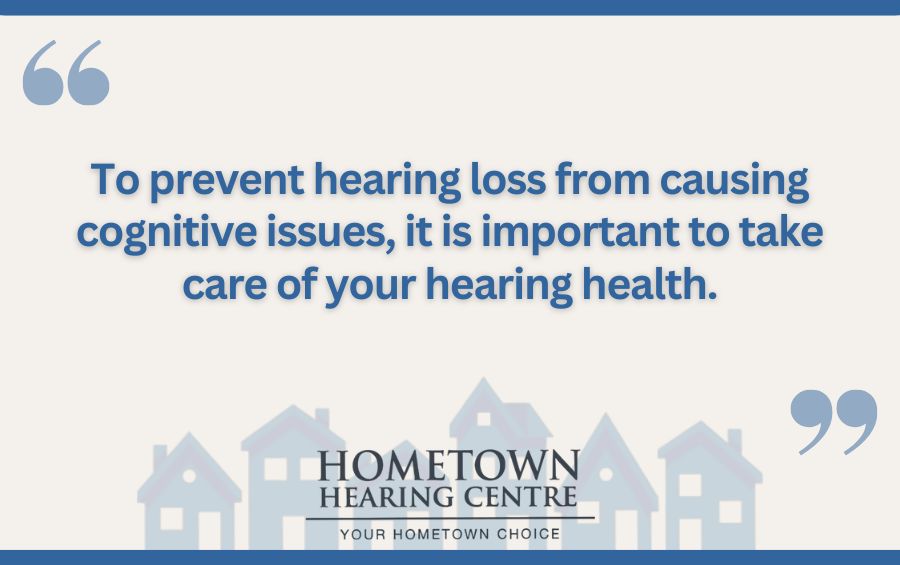“Being around my loved one who is struggling with their hearing is frustrating, but what can I do to help?”
We understand the strain hearing challenges place on friends, family, and coworkers. So, the fact that you are concerned is a major step toward helping them find a solution.
We’re also very aware that untreated hearing loss causes a person to lose confidence, withdraw socially, and become isolated and depressed, as well as puts them at a greater risk of cognitive decline, dementia, hypertension, balance disorders, and accidents.
One of the most difficult endeavors is attempting to get a loved one to deal with their hearing loss (the words “stubborn” and “proud” come to mind), but you’re doing the right thing.
We’ve helped concerned family members and friends just like you deal with someone who is struggling with hearing loss, and we’re here to help walk you through the process.
The key to your success: Be proactive.
Six Proactive Steps for Helping Your Loved One With Hearing Loss
Like any medical condition, the sooner your loved one can address their hearing loss the better, so here are six proactive steps you can take to help them with hearing loss.
Step 1. Recognize the warning signs of hearing loss.
Before you assume that your loved one needs help with hearing loss, it’s good to understand exactly what your loved one is going through. Work your way through this checklist of hearing loss warning signs before taking any additional steps.
- Struggling to hear on the phone
- Difficulty following a conversation when there are multiple speakers
- The volume on the TV is too loud
- Fatigue from straining to hear conversations
- Difficulty hearing a conversation in a crowded environment
- Asking others to repeat themselves with greater frequency
- Complaining that everyone around them is mumbling
- Misunderstanding what others say
- Difficulty understanding women and children
- Frustration, annoyance, and withdrawal from social situations
By being empathetic to what your loved one is going through, you can approach them with a more helpful attitude and take the right steps to help them get the help they need.
Step 2. Understand the serious effects of hearing loss.
A decreased capacity to process sound is only one of the challenges of hearing loss. Untreated hearing loss has a negative impact on relationships, quality of life, and overall health.
When people isolate themselves from others, they begin to experience depression and anxiety, which lead to cognitive decline and also increase a person’s stress level, affecting their overall health. Because the ears are a critical part of maintaining your balance, hearing loss also contributes to balance-related falls.
A person’s inability to hear instructions, alarms, or warning sounds can also increase their risk of accidents. A study conducted at the University of California, Irvine concludes that “hearing difficulty is significantly associated with accidental injury, especially injury related to work or leisure.”
Helping your loved one understand that hearing loss affects more than just their hearing is an essential element in encouraging them to seek help.
Step 3. Change the way you communicate.
There are several changes in the way you communicate that can demonstrate that you’re doing your best to empathize with your loved one.
Begin with making sure that you have their attention before speaking to them, especially making sure that they’re looking at you so they can pick up non-verbal cues while you’re speaking.
Be aware of the environment where you’re having your conversation. Change to a quieter location where there are fewer conversations taking place or where background noise is minimal or non-existent.
Change how you speak during conversations with your loved one. Slow down your speech and be aware of how you enunciate. When they ask you to repeat yourself, rephrase what you said rather than repeating the exact same words.
Instead of making observations about your loved one’s struggle with their hearing, use empathetic language, like:
“I know it’s frustrating when I have to repeat myself, and I don’t want you to have to go through that too.”
Step 4. Commit to being a communication partner.
Good communication partners recognize that they are partners on a journey. You need to commit to the fact that you may have to change your perceptions of hearing loss and be ready to help your loved one relearn how to adapt to the world around them.
This includes understanding what sounds and environments are difficult for your loved one. For example, with high-frequency hearing loss, there are certain sounds of speech that are difficult to distinguish, such as s, sh, t, k, and p. Consequently, “Wear your pink socks” could be heard as “Were you in Oz?”
When you recognize that these sounds and others present challenges, you can be ready to assist with translation when the confused look registers on their face.
Stay at your loved one’s side to help with translation during social events and important appointments in order to help reduce their frustration and misunderstanding.
Step 5. Be helpful, but don’t enable.
There are limits to being a committed communication partner. Though you can help by acting as the “ears” of a relationship – recounting conversations, filling in word gaps, or communicating by proxy, you have to differentiate between providing support and enabling a person to avoid getting help.
Hearing loss won’t get better on its own and, as we mentioned, it is linked to a variety of negative mental and physical health consequences that the assistance you provide cannot overcome. Create clear limits in your communication partnership, like only helping with more important conversations, not ALL conversation.
Keep in mind that if you are their ears, they’ll come to depend on you for hearing and never seek the help they need.
Remind them that they can live a more active and independent lifestyle if they don’t have to rely on you to translate for them.
Step 6. Educate your loved one about treatment options.
When a person has hearing loss, they immediately assume that they must start wearing a hearing aid. For many, wearing a hearing aid is an extremely difficult transition.
Though hearing aids are lighter weight, less bulky, less intrusive, and better performing than those their parents or grandparents wore, and they are highly effective in treating and reversing the negative consequences of hearing loss, they are not the only treatment option.
Hearing aids, cochlear implants, and other hearing technologies are used in the treatment of specific types of hearing loss, but treatment options can also include:
- The removal of earwax or other objects blocking the ear canal
- Medical therapies to reduce inflammation or fluid caused by bacterial infections
- Surgical procedures to remove growths or repair structural defects
- Assistive listening devices
- Aural rehabilitation, listening and auditory communication enhancement
Here’s the bottom line. Without an accurate hearing assessment, no one can accurately predict what treatment option will best address your loved one’s hearing challenges.
Help Your Loved One Take the First Step to Better Hearing
Supporting a loved one through the challenges of hearing loss is a profound journey that calls for empathy, understanding, and unwavering support. It may not always be easy, but by embracing the tips and strategies shared in this guide, you have the power to make a tremendous difference in your loved one’s life.
Remember, their hearing loss is not a barrier to be overcome but a unique part of who they are. By seeking professional assistance from compassionate hearing centres like Hometown Hearing Centres, you can ensure your loved one receives the personalized care and support they deserve.
Reach out to the hearing centre nearest you or request a callback by clicking here.




